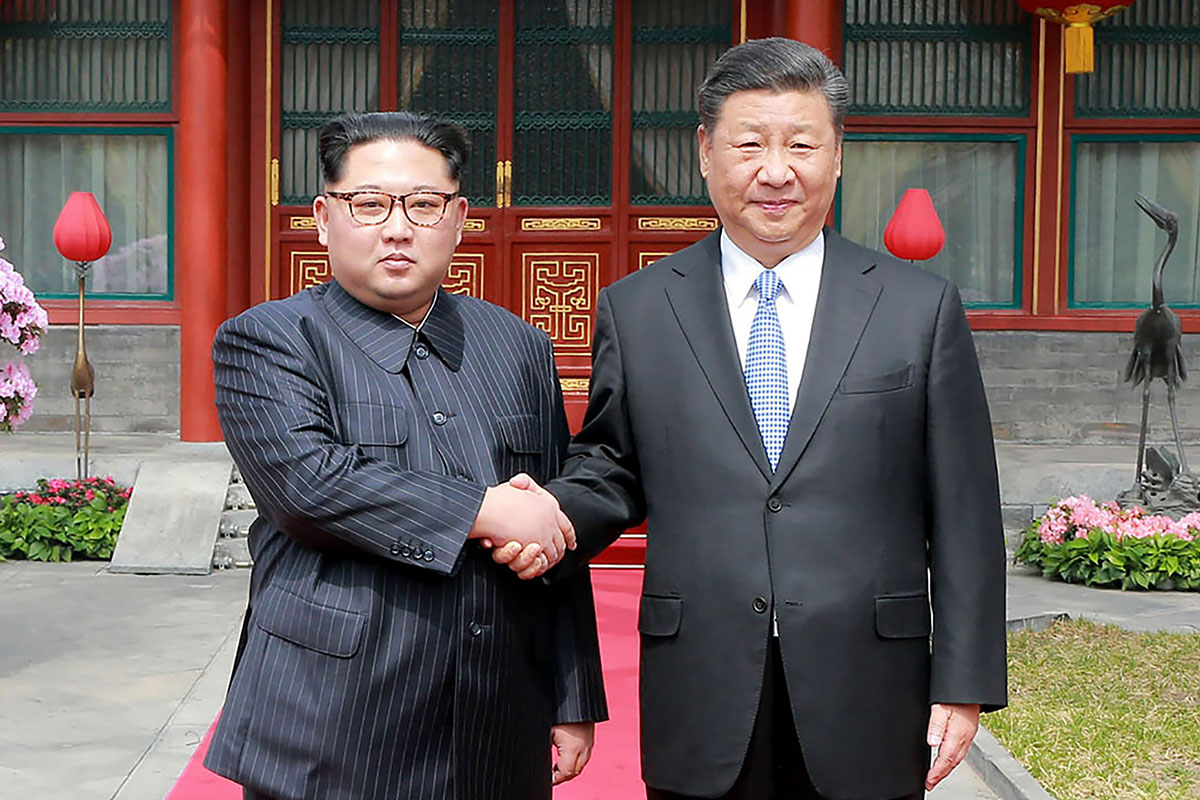North Korean dictator, Kim Jong Un’s first foreign trip saw him take a bulletproof train to neighbouring China where he received a lavish welcome from Chinese president, Xi Jinping. Kim’s trip was kept under wraps until it was announced after Kim and his delegation had returned to Pyongyang.
The North Korean leader’s visit comes before the proposed summit between the United States (US) and South Korea which is expected to take place in May. Since the start of the year, Kim’s tone has seemingly mellowed from his rambunctious actions towards the end of last year which included several heated exchanges with US president Donald Trump and the largest nuclear test by Pyongyang.
Many were left wondering if Kim had truly meant what he said during his New Year’s address where he called for peace on the Korean Peninsula – a locution which he has repeated many times previously but not backed with concrete action. However, a string of seemingly reconciliatory actions followed his speech. The first saw him agreeing to send a contingent to participate in the Winter Olympics in South Korea, the sending of a high-level delegation from Pyongyang to meet officials in Seoul and the cherry to top it all off – Kim’s expression of intent to meet with President Trump and discuss possible denuclearisation of the Korean Peninsula.
As progress towards peace was made, two things remained unchanged – continued sanctions on the hermit kingdom and China’s relatively close relationship with Kim. As the Trump-Kim summit inches closer, Kim must ensure he has the backing of “big brother” China which is vital to the sustenance of his regime.
His landmark meeting with Trump cannot be seen as side-lining China in discussions pertaining to the geopolitical intricacies of the Korean Peninsula. China is very much invested in North Korea. Historically, China successfully intervened in the Korean War on behalf of the North Koreans and forced the largest American retreat in history as a result. Economically, China remains Pyongyang’s lifeline – as Chinese trade accounts for upwards of 90 percent of North Korea’s trade volume.
China for the longest time has been reticent about censuring the North Korean regime and although occasionally backing international sanctions on the North, has always had the tendency of defending the it. However, Kim’s ascent to power has seen ties slightly fray with his Chinese counterparts. His continued nuclear provocations have irked Beijing and his decision to want to meet with Trump could have frustrated the Chinese, if it is perceived disrespectful because Beijing was not consulted prior to this decision.

Hence, his visit to the land of the dragon could signify two things. Firstly, it is a demonstration of who is the real boss in the wider East Asian neighbourhood – China. What Beijing cannot afford is North Korea slipping up during the Kim-Trump summit and sparking a resurgence of conflict on the peninsula. This means the US would be able to bolster its troop presence closer to China – in South Korea – and there could be a potential refugee crisis if millions of North Koreans decide to flee the war and cross the border to China.
Secondly, the image of Kim as a tyrant and a trigger-happy dictator has to change ahead of the summit. North Korean leaders have not had much to gloat about in terms of a positive international persona but it seems as if Kim is determined on shifting that perception. His visit has been portrayed in the media as the start of Kim, the “international statesman.” From this depiction, Kim could be thinking from a short-term perspective of just bolstering his persona before the summit and going back to his usual self after it is over or he could be on the cusp of a Dengist-like reform agenda. After all, in the midst of introducing market-driven reforms to China, Beijing’s leader at the time, Deng Xiaoping made frequent trips overseas to meet with foreign leaders and to build a new image of a free market China. Kim has also made a series of rulings during the past few years which could suggest a shift towards such a reform.
The announcement of the Trump-Kim summit was welcomed with cautious optimism from most quarters but before there can be any cosying done, China would be mindful to remind Pyongyang who is big brother. Given Beijing’s considerable stake in the hermit state, it would definitely be casting a hawkish glare on developments pertaining to the summit in May and that should come to no one’s surprise.
